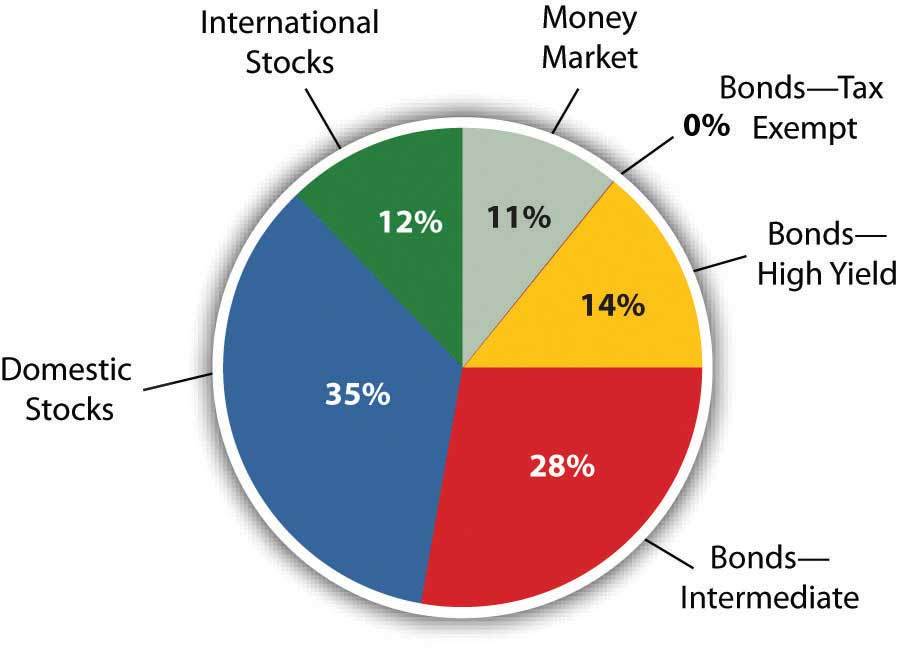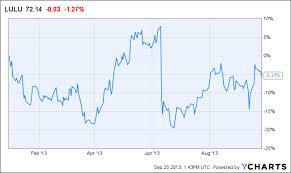How Many Blue Chips in a Bag?
- By Trusha Desai
- •
- 17 Aug, 2015
- •
August 17, 2015

We all know about diversification and the importance of blue chip, growth-oriented, dividend-intensive stocks.
However, when you are a newbie, attracted by low commission rates to online stock trading, what should your portfolio contain? When you listen to financial advisers and planners, they will either suggest a mutual fund, segregated fund or a stock / bond mix. If you are a mutual fund / ETF person, you go that route. Based on your mutual fund or ETF selection, you may decide to ride your investment through highs and lows and eventually make some gain. If you believe in segregated funds, you go that way.
As a stock / bond mix portfolio adviser will tell you, the higher your accessibility to risk, the larger the mix of stocks in your portfolio. If you keep a fair amount of cash and bonds on the sidelines (25% at the bare bones), your portfolio is considered to be risk tolerant. We must bear in mind, that your age and risk tolerance are not mutually exclusive. As you grow older, your risk tolerance should decline. Therefore, there should be a greater percentage of bonds, mutual funds that promise a steady return and cash in your portfolio.
If you have a stock broker advising you on your investments, (s)he will have taken you through a preliminary survey to ascertain your risk tolerance. Please remain advised, that this survey is extremely important in determining your emotional response to the stock market highs and lows. For if your are going to turn insomniac, pop Prozac and Valium when the stock market incurs a bearish trend and loses 2% in a day, then you might as well sit in cash and bonds.
Canadian banks continue to be a sound investment. There have been studies and actual investments done where the portfolio consists entirely of the five. At year-end, the mix is reallocated and it turns out that the portfolio may beat the TSX. One might wonder, if the intent is simply to beat the TSX (maybe), why not simply buy a TSX ETF like XIU and watch your late night shows and sleep soundlessly?
It probably will seem like a no-brainer, but that is when you verify the dividend the you will receive by pursuing either route. It also depends on whether you are going to maintain control of your portfolio, or give it to an ETF manager who will be paid MER or a stock broker who will steer your portfolio in the direction that you had outlined.
I believe that a sound strategy of diversification and acquiring blue chip stocks works. We cannot necessarily buy low and sell high. We cannot necessarily be Warren Buffett and pick companies that have been recently beaten up and yet have a financial stronghold in the economy. And yet, we may soar ahead ~ sort of.
However, when you are a newbie, attracted by low commission rates to online stock trading, what should your portfolio contain? When you listen to financial advisers and planners, they will either suggest a mutual fund, segregated fund or a stock / bond mix. If you are a mutual fund / ETF person, you go that route. Based on your mutual fund or ETF selection, you may decide to ride your investment through highs and lows and eventually make some gain. If you believe in segregated funds, you go that way.
As a stock / bond mix portfolio adviser will tell you, the higher your accessibility to risk, the larger the mix of stocks in your portfolio. If you keep a fair amount of cash and bonds on the sidelines (25% at the bare bones), your portfolio is considered to be risk tolerant. We must bear in mind, that your age and risk tolerance are not mutually exclusive. As you grow older, your risk tolerance should decline. Therefore, there should be a greater percentage of bonds, mutual funds that promise a steady return and cash in your portfolio.
If you have a stock broker advising you on your investments, (s)he will have taken you through a preliminary survey to ascertain your risk tolerance. Please remain advised, that this survey is extremely important in determining your emotional response to the stock market highs and lows. For if your are going to turn insomniac, pop Prozac and Valium when the stock market incurs a bearish trend and loses 2% in a day, then you might as well sit in cash and bonds.
Canadian banks continue to be a sound investment. There have been studies and actual investments done where the portfolio consists entirely of the five. At year-end, the mix is reallocated and it turns out that the portfolio may beat the TSX. One might wonder, if the intent is simply to beat the TSX (maybe), why not simply buy a TSX ETF like XIU and watch your late night shows and sleep soundlessly?
It probably will seem like a no-brainer, but that is when you verify the dividend the you will receive by pursuing either route. It also depends on whether you are going to maintain control of your portfolio, or give it to an ETF manager who will be paid MER or a stock broker who will steer your portfolio in the direction that you had outlined.
I believe that a sound strategy of diversification and acquiring blue chip stocks works. We cannot necessarily buy low and sell high. We cannot necessarily be Warren Buffett and pick companies that have been recently beaten up and yet have a financial stronghold in the economy. And yet, we may soar ahead ~ sort of.



